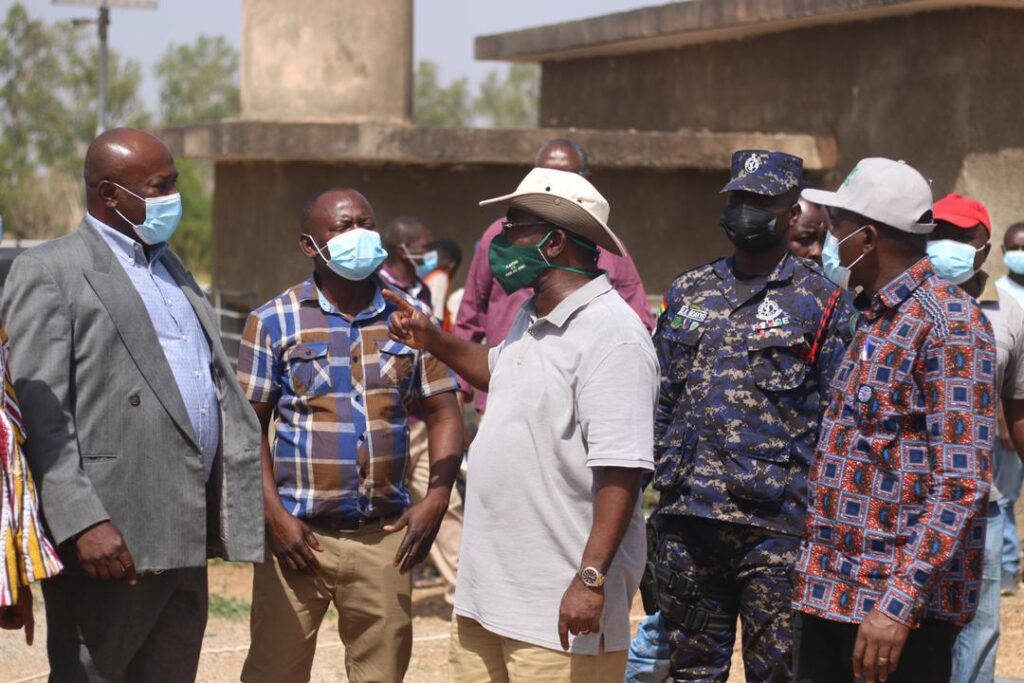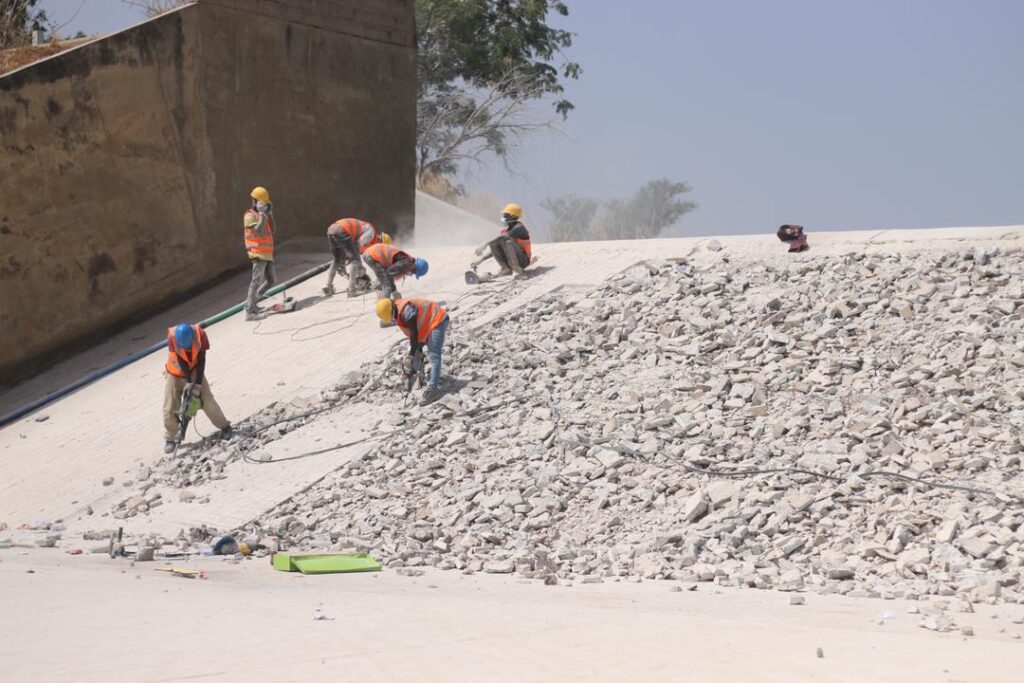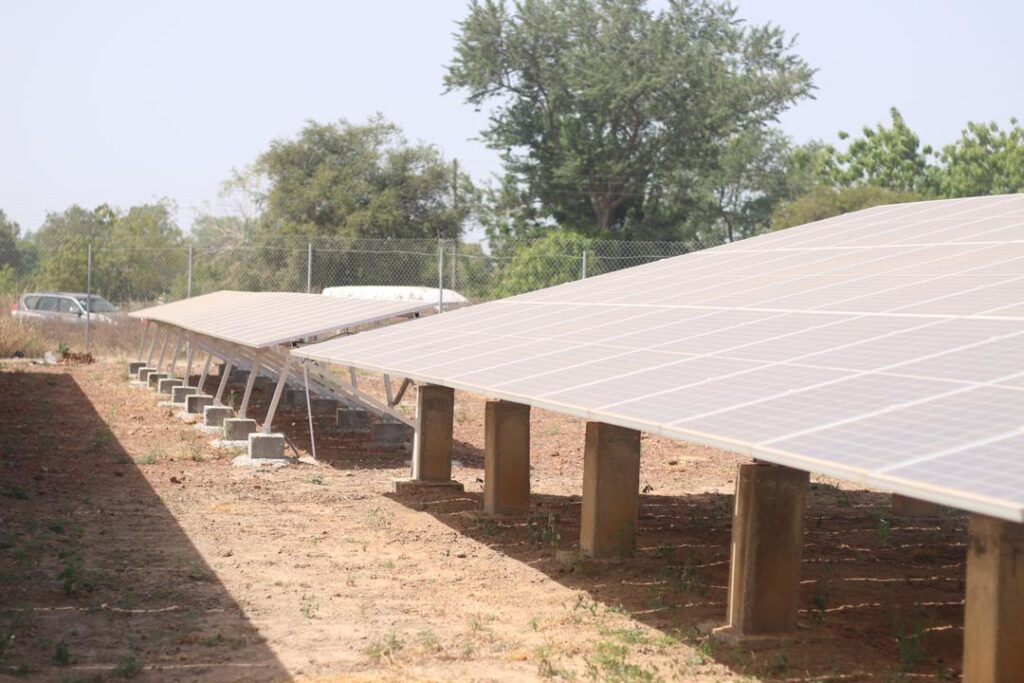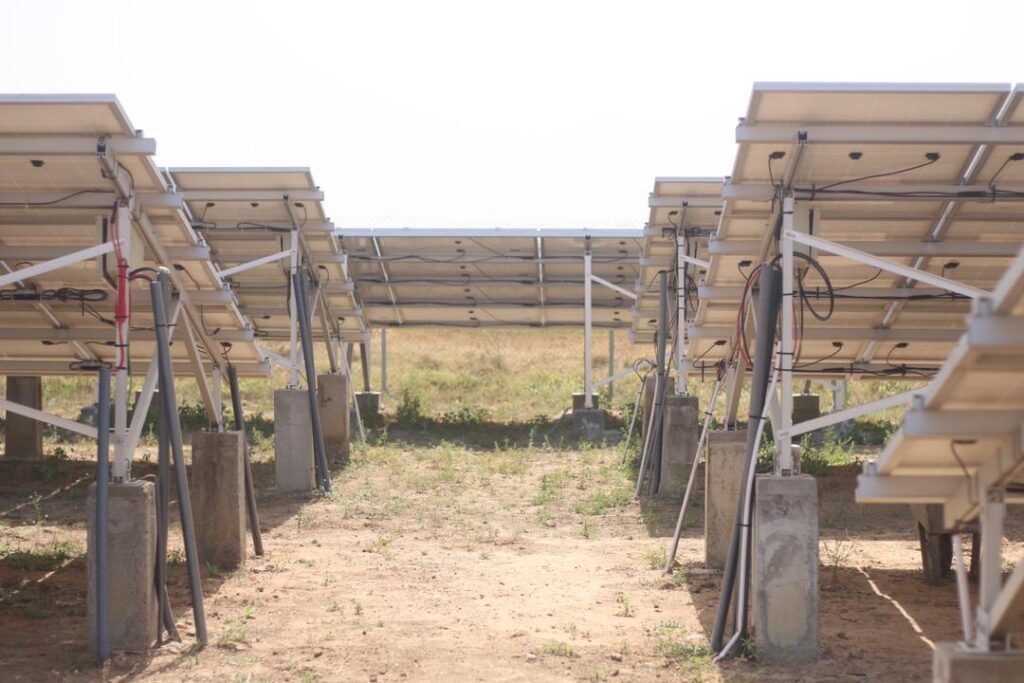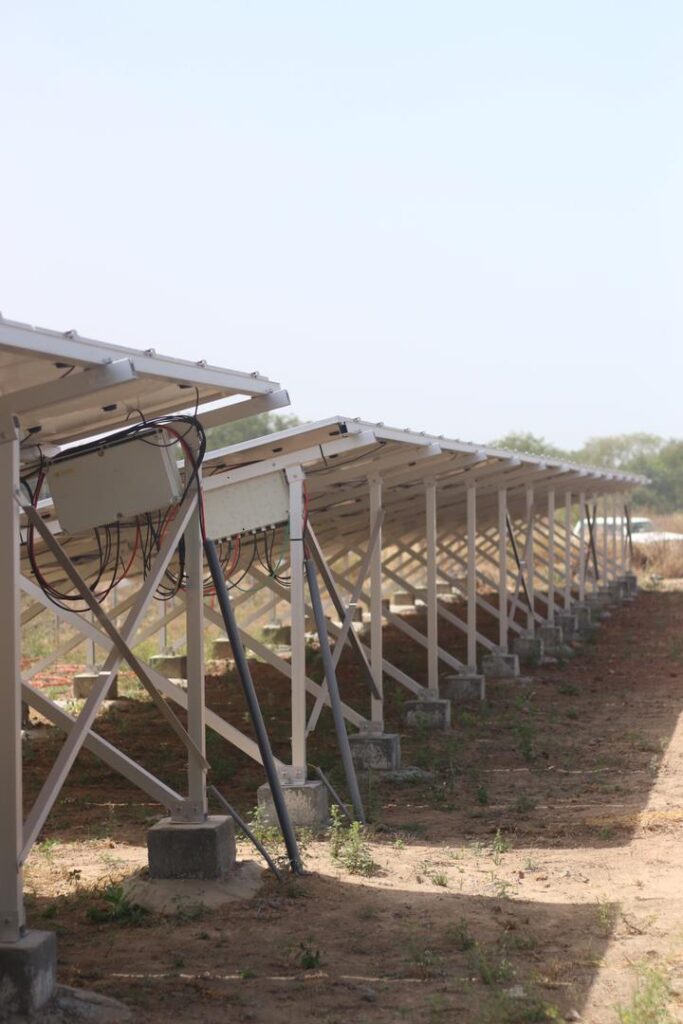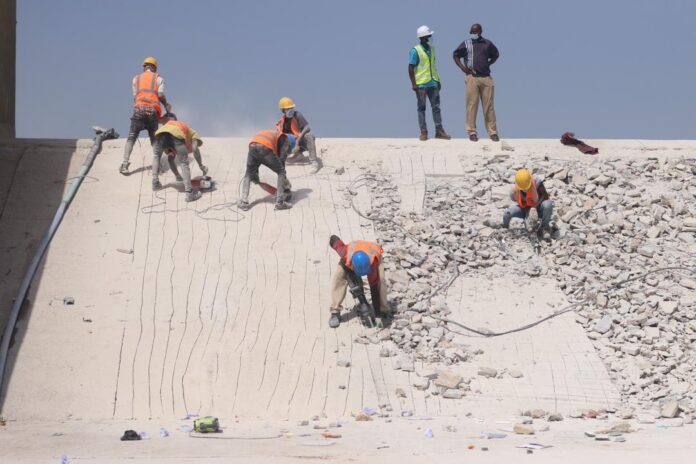The Minister of Agriculture, Dr. Owusu Afriyie Akoto, has revealed that the rehabilitation of the Tono Irrigation Project, when completed, would benefit over 3000 rice and other present farmers in the Kassena-Nankana District in the Upper East Region.
According to the minister, the Tono irrigation facility, which was established in 1974, benefited over 2,000 farmers, adding that its expansion work, if 100% completed, will benefit more farmers and improve yields.
The $35-million World Bank project, Dr. Akoto said, was rehabilitated to stop the spillage of water which normally destroys millions of acres of farmlands in the district, causing huge losses to farmers.
Speaking to the media after visiting the site, the food and agriculture minister said the project was about 95% completed which includes the construction of walls, floors, and the channels where the water will finally flow before the farmers can pump to their farms.
“What you see here is complete work because the constant rainfall washed away the steel way as well as the walls so we ran to the World Bank and within two years the projects is about 95% completed,” he said.

He charged the Chairman of the Water Users Association Federation, Mr. Robert Kwame Abokah, to write to his office and table down all their concerns and needs so his ministry can assist them.
This was after Mr Akobah had appealed to the minister to support the Federation with land preparation implements to enable the farmers cultivate large farms to feed the country.
Mr Akobah seized the chance to appeal to the minister to reduce the price of fertilisers and ensure its early release for the farmers.
However, responding to this request, Dr Akoto made it clear that Ghana does not produce fertilisers, explaining that they should be prepared to “pay more this year for the product because this year alone the price has gone up three times.”
Earlier, at the Balgatanga Regional Coordinating Council, the minister told stakeholders in agriculture, who included farmers and agric extension officers that because of the Planting For Food and Jobs (PFJ), Ghana has become the food basket of West Africa.
“Five years ago lots of farmers didn’t know the effects of fertiliser but through the government’s Fertiliser Subsidy, many farmers are now keen in getting the product for use,” he said.
He, therefore, directed the Director in charge of Women in Agriculture at the Ministry of Food and Agriculture to present a paper on how women can fully participate in food processing and modalities to improve women’s participation in the sector.
The minister’s tour of the region took him to Zualogu also in the Kassena-Nankana District to inspect ongoing construction work on a 44,000 metric ton warehouse which is around 90% completed.
